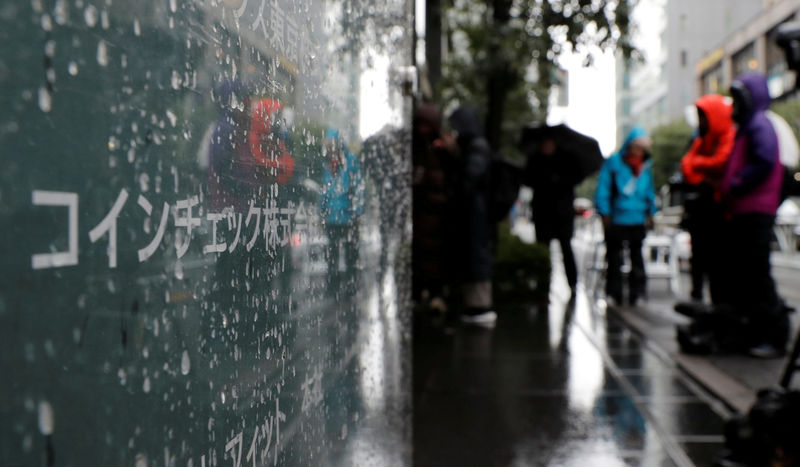By Takahiko Wada and Thomas Wilson
TOKYO (Reuters) - Japanese cryptocurrency exchange Coincheck Inc, under pressure to better safeguard investors after the daring theft of $530 million of digital money last month, filed on Tuesday a report with regulators on the hacking, a person familiar with the matter said.
The Financial Services Agency ordered Coincheck to raise its standards after the late-January hack, directing it to submit a report on the security of its systems and measures it would take to prevent a repeat.
The submission of the report came as Coincheck lifted curbs on yen withdrawals. Further details on the report were not immediately available.
The exchange, which froze all withdrawals of yen and cryptocurrencies following the heist, said last week it had confirmed the integrity of its system security and would from Tuesday allow customers to withdraw yen. A source told Reuters on Friday that Coincheck had received withdrawal requests from customers totaling about 30 billion yen ($280 million).
The exchange will hold a press conference at 8 p.m. local time, the person familiar with the matter said. Coincheck did not immediately respond to an emailed request for comment.
The heist has exposed flaws in Japan's system of regulating cryptocurrency trading, and raised questions over the country's dash to oversee the industry - a move that was in sharp contrast to clampdowns by policymakers in countries such as South Korea, China and India.
Despite allowing customers to resume withdrawing yen from its systems, Coincheck said last week it would keep in place curbs on cryptocurrency withdrawals until it could guarantee the secure resumption of its operations.
A lawyer representing a group of ten cryptocurrency traders told Reuters that they will launch a lawsuit against Coincheck on Thursday over the curbs on taking out cryptocurrencies.
The group will file a claim at the Tokyo District Court for Coincheck to allow withdrawals to private "wallets" - digital folders for storing money - outside the hacked exchange, the lawyer, Hiromu Mochizuki, said.
Separately, Bank of Japan Governor Haruhiko Kuroda said on Tuesday cryptocurrencies likely won't threaten legal tenders like the yen any time soon as they are mostly used for speculative trading, rather than as payments and settlement means.
Kuroda also said the BOJ was closely watching developments in cryptocurrency trading to ensure they do not erode public trust over the safety of existing settlement systems overseen by the central bank.

"Cryptocurrencies aren't legal tenders and don't have assets to back up their value," the BOJ chief said.